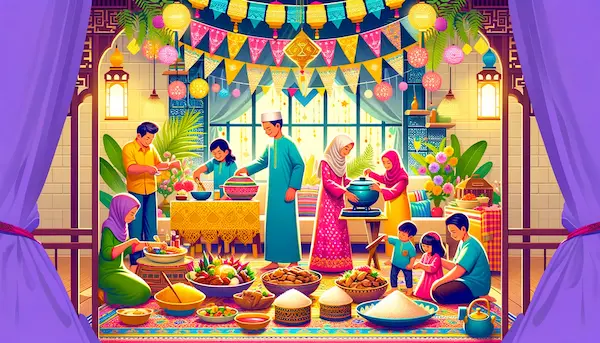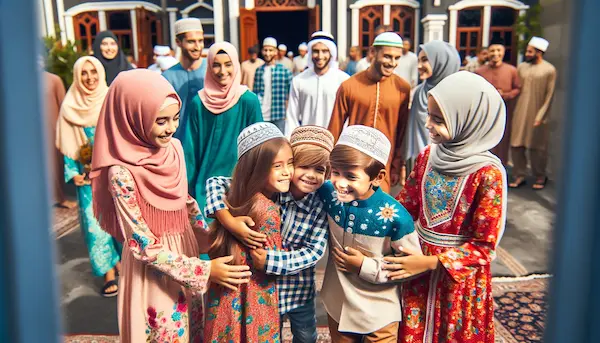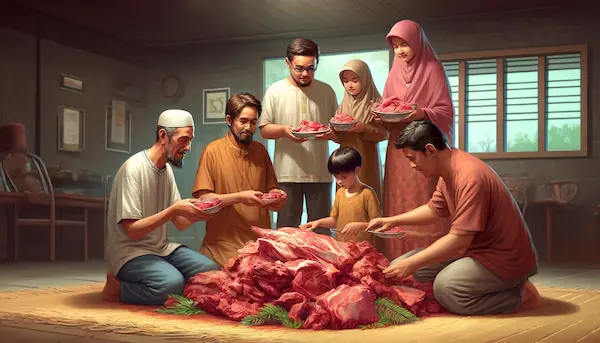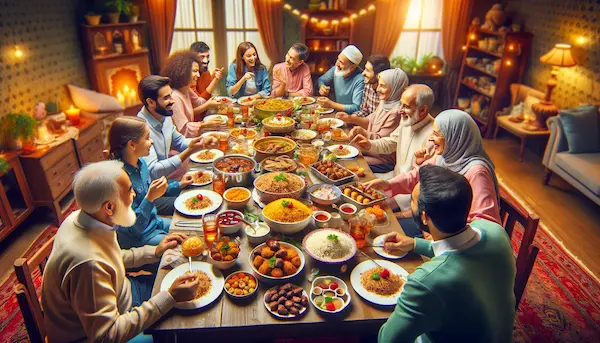Discover the story of Eid al-Adha through engaging images and learn about its traditions while enhancing your English vocabulary and grammar skills.

Eid al-Adha, also known as the “Festival of Sacrifice,” is one of the most important holidays in the Islamic calendar. It commemorates the willingness of Prophet Ibrahim to sacrifice his son as an act of obedience to God. Today, families come together to celebrate with joy, generosity, and delicious food.

On the morning of Eid al-Adha, Muslims around the world attend special prayers at the mosque. They wear their finest clothes and greet each other with “Eid Mubarak,” which means “Blessed Eid.” This is a time to strengthen community bonds and express gratitude.

One of the central traditions of Eid al-Adha is the sacrifice of an animal, such as a goat, sheep, or cow. The meat is divided into three parts: one for the family, one for friends and neighbors, and one for the poor and needy. This act symbolizes sharing and caring for others.

After the sacrifice, families gather for a grand feast. Traditional dishes like biryani, kebabs, and sweets are enjoyed by everyone. It’s a time of happiness, storytelling, and creating memories with loved ones.

Eid al-Adha is also a time for giving and receiving gifts. Children especially look forward to this part of the celebration. They receive toys, clothes, and money from elders, making the day even more special.

Charity is a significant aspect of Eid al-Adha. Muslims are encouraged to help those less fortunate by donating food, clothes, and money. This practice teaches the values of compassion and generosity.

As the day comes to an end, families reflect on the significance of Eid al-Adha. It’s a time to be grateful for their blessings, strengthen their faith, and look forward to the year ahead with hope and kindness.
Vocabulary and Grammar Focus:
- Vocabulary Words: Commemorate, sacrifice, obedience, gratitude, tradition, symbolize, feast, generosity, compassion.
- Grammar Points:
- Present Simple Tense: “Muslims around the world attend special prayers.”
- Past Simple Tense: “Prophet Ibrahim was willing to sacrifice his son.”
- Future Simple Tense: “Families will look forward to the year ahead.”
- Imperatives: “Strengthen community bonds and express gratitude.”
- Adjectives and Adverbs: “Finest clothes,” “joyously,” “delicious food.”
This short story aims to educate learners about Eid al-Adha while enhancing their English vocabulary and understanding of basic grammar concepts through engaging images and simple, clear sentences.
